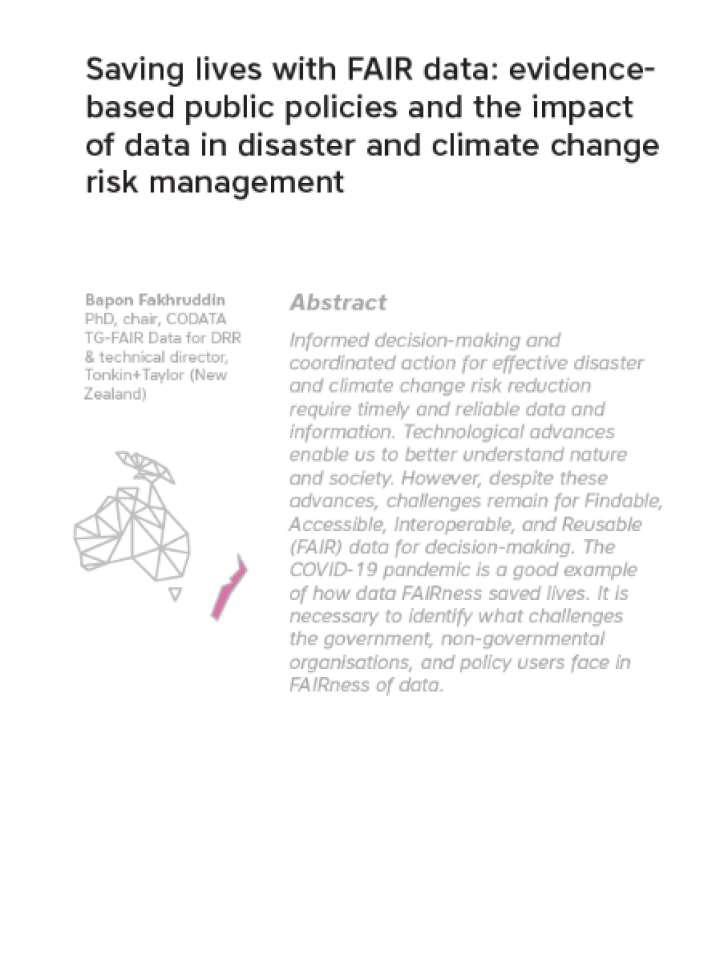Saving lives with FAIR data: Evidence-based public policies and the impact of data in disaster and climate change risk management
This paper details the challenges that remain for Findable, Accessible, Interoperable, and Reusable (FAIR) data for decision-making. Evidence can inform and improve implementation of disaster risk reduction policy, responsiveness and provision of public services during emergency phases. This, however, requires timely and reliable data and information. Policy nowadays seeks to implement FAIR principles across data ecosystems. The COVID-19 pandemic is a good example of how data FAIRness saved lives. It is necessary to identify what challenges the government, non-governmental organisations, and policy users face in FAIRness of data.
This paper indicates that it is critical to improve data availability in all four phases of disaster management cycle (mitigation, preparedness, response and recovery). For mitigation, data can help identify actions to reduce or eliminate risk. For preparedness, data can help in monitoring, detection, forecasting and prediction of disasters to provide early warning. In the response phase, damage assessment and post-disaster coordination and response, such as search and rescue operations, can be informed by data. The process to return to a proper level of functioning following a disaster will benefit from the change detection from multi-temporal data.
Explore further
